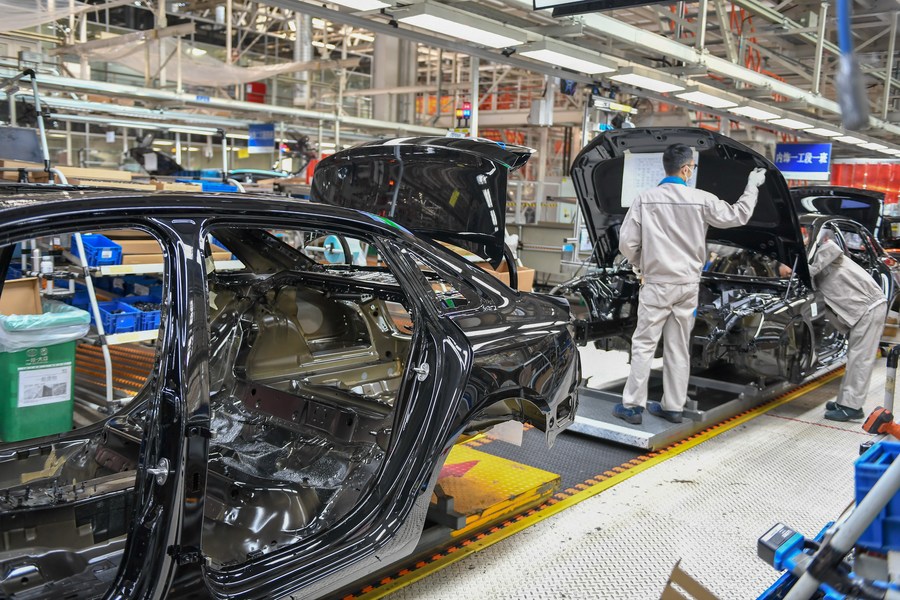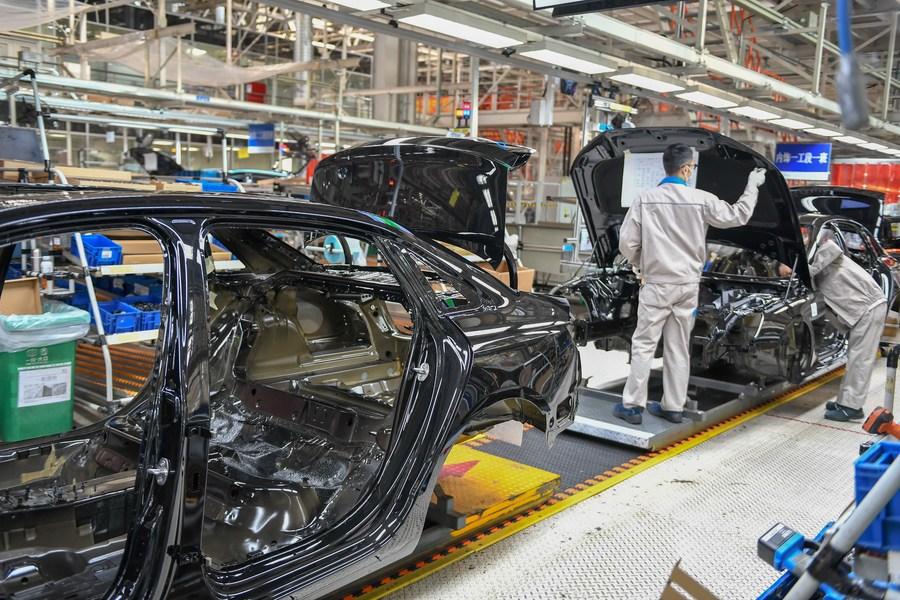
Workers assemble vehicles at the final assembly line of automobile maker FAW-Volkswagen in Changchun, northeast China's Jilin Province, Jan. 5, 2021. (Xinhua/Zhang Nan)
BEIJING, Oct. 14 (Xinhua) -- China's factory prices continued to pick up in September amid booming demand and rising prices of coal and products of energy-intensive industries, official data showed Thursday.
The producer price index (PPI), which measures costs for goods at the factory gate, went up 10.7 percent year on year in September, faster than the 9.5 percent year-on-year increase registered in August, the National Bureau of Statistics (NBS) said.
The carryover effect contributed around 1.8 percentage points to last month's PPI growth, the same as that in August. New price increases contributed 8.9 percentage points to the growth, up 1.2 percentage points from one month earlier, NBS data showed.
The faster expansion of PPI last month was due to the price rises in coal and products of some energy-intensive industries, said senior NBS statistician Dong Lijuan.
The price rises of energy raw materials were due to the combined impact of increased demand and declined supply, said Wen Bin, chief analyst at China Minsheng Bank.
With the accelerated recovery of China's economy and the advent of massive coal consumption season of autumn and winter, the demand for coal is relatively strong, he added.
He also noted that recent floods in Shanxi Province restricted coal production and transportation, which also strained the power supply.
Among the major sectors, coal mining and washing, oil and gas extraction, petroleum, coal and other fuel processing, chemical raw materials and product manufacturing, as well as ferrous and non-ferrous metal smelting and processing, contributed around 80 percent of the increase in PPI inflation in September, Dong said.
On a monthly basis, China's PPI rose 1.2 percent in September, up 0.5 percentage points from August.
Along with the PPI, NBS data also showed that China's consumer price index, a main gauge of inflation, rose 0.7 percent year on year in September.
The slower growth was partly driven by a drop in food prices, which declined 5.2 percent year on year last month. In particular, the price of pork, a staple meat in China, slumped 46.9 percent from a year earlier. ■




 A single purchase
A single purchase









